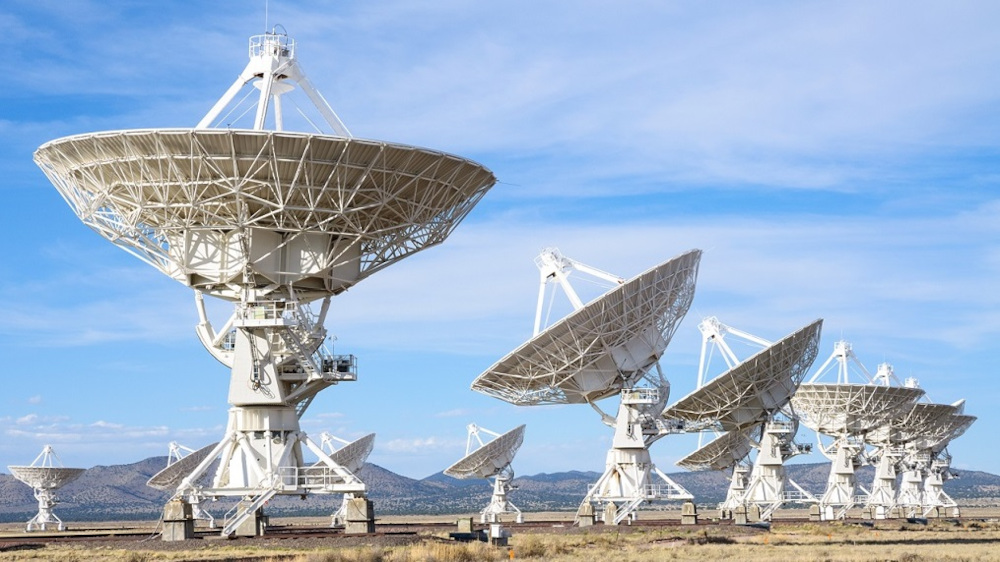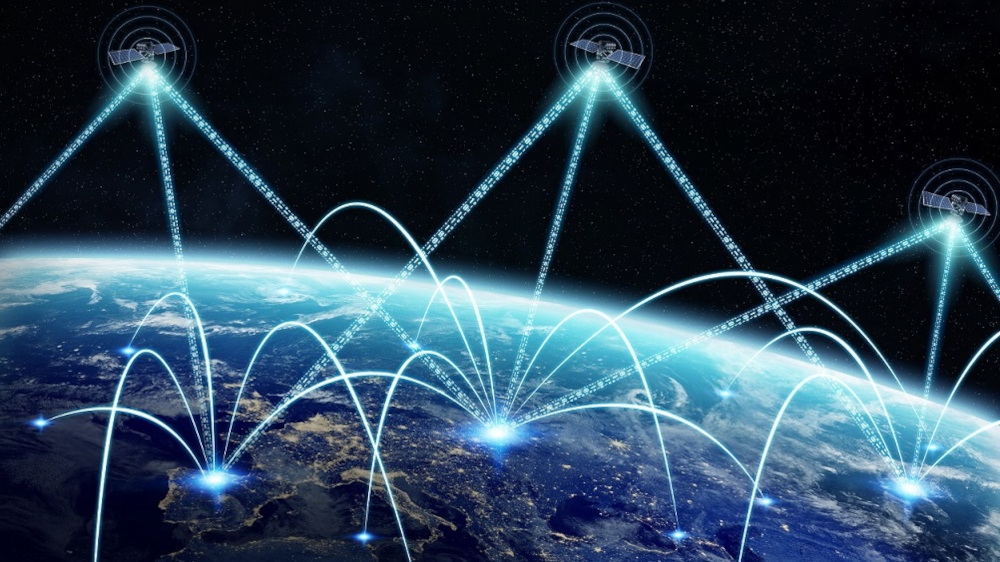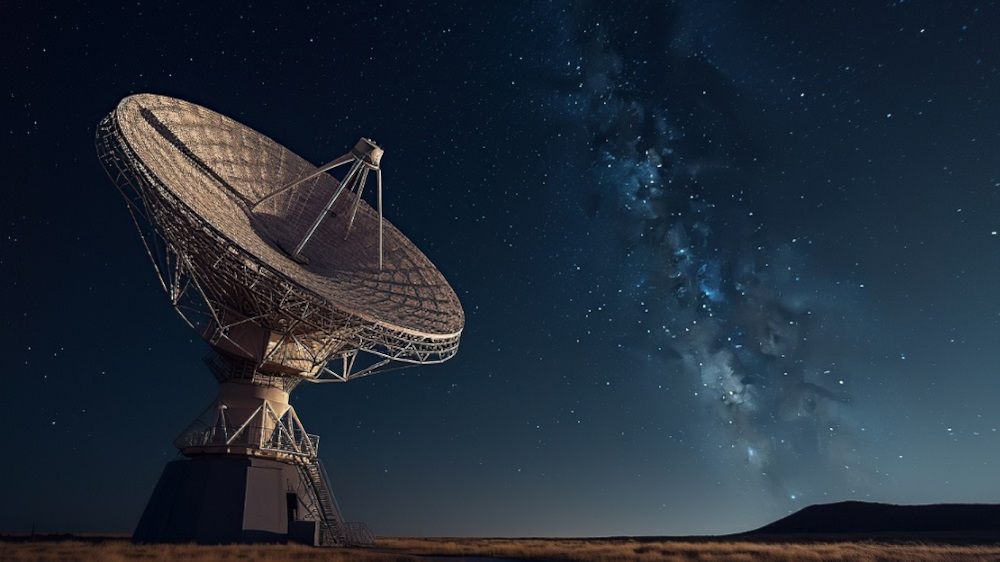
Space is taken into account more strongly in security and defence policy
Space as an operating environment is increasingly important for defence. Its importance to the armed forces has grown faster than we have anticipated. This is largely due to the explosive growth of space business. However, we cannot underestimate the growing role of space power in the reforming geopolitics and intensifying competition between superpowers.
In recent years, the “pawns” in space have strengthened on the playing table of the great powers, and their transfer plays an important role in power politics. We are clearly facing something new when we assess the importance of space for mankind. It is growing at a huge rate and at the same time it is becoming increasingly important in the field of security and defence. NATO defines space as a dynamic and rapidly evolving area that is an important part of the Alliance's deterrence and defence. An increasing number of states have drawn up or are currently drawing up a defence space strategy.
In this article, I will present some thoughts and perspectives on the military significance of space and space policy from the perspective of defence. The views presented are the writer's own and are not based on Finland's official positions.
Space war or space defence
Space defence, what does it actually mean and how has the current situation come about? We are even talking about a space war. They often ask me what it is. After all, space is fundamentally free from all military activities. Widely cited UN Outer Space Convention of 1967 (Outer Space Treaty) is the most important of all space treaties. More than 100 states, including Finland, have acceded to the Convention. It emphasises the free use of space for peaceful purposes. Among other things, this and some other treaties declare other celestial bodies free of military bases and prohibit the transportation of weapons of mass destruction into outer space or into other celestial bodies. Otherwise, the use for security and defence purposes is fairly free.
There are very few rules related to the use of outer space. Many countries are developing capabilities for carrying out hostile activities in outer space or interfering with the functioning of systems in many ways. Is the use of these systems a space war? What about the military use of space? The concepts of space defence, space war and military use of space need to be clarified.
Space has served the armed forces for a long time. In fact, it is fair to say that space activities were mainly military during the Cold War. Most of the satellites launched each year were military satellites. The significance of space for civil society only started to become more pronounced in the 1990s. The American Global Positioning System (GPS) was originally developed for military use in the 1970s. The system, which originated from the need to locate submarines, has expanded into the world's leading satellite positioning service, which we use daily with numerous applications and devices. GPS available to everyone is currently the most widely used positioning service in the world. Weapon systems utilise the secure signal of the system.
Positioning alone has become a long way from the present. Now space has been harnessed to serve society and the armed forces extensively. At the same time, services previously built with central government resources are increasingly created by companies. They are widely available and the market is growing rapidly. Of course, most of the services used by the armed forces have been tailored to meet the customer's requirements, but the civilian use of space services in particular will increase the market and accelerate technological development.
Space services used by the armed forces can be roughly divided into the following areas: satellite communication, intelligence, surveillance, time data, positioning and early warning. The rise of outer space into a military operating environment (Space Domain) is due to the fact that activities in space play a major role in the success of their operations and those of their opponents. It is good to be aware that the space operating environment does not mean only satellites in orbit. This is an entity that includes at least the following functions: satellites in orbit (space segment), data transfer between Earth and satellite (data transfer segment), ground data transfer arrangements (ground segment), launch systems, and command and situational awareness systems. We can say that space activities do not just take place in space.
Safeguarding one's own capabilities and influencing the opponent's freedom of action are important for success in the war. According to the prevailing Western view, space defence means measures taken to protect and defend the space infrastructure and its operations. Almost all states refrain from proclaiming aggressive space operations as a means of defending space infrastructure. On the other hand, Western countries are also planning aggressive space operations to support their military operations. This is partly a contradiction.

In addition to these space services, I would like to highlight in this context an activity that supports all space activities. Space situational awareness forms the foundation of space defence and is a prerequisite for the management of one's own space operations. The space situation picture used by the armed forces contains information on their own and their opponents' satellites, including their purpose and capabilities, and information on factors affecting their operations, such as space weather data.
The information in the space situation awareness is used for many different purposes, such as protection against the enemy's satellite intelligence. Space situational awareness is a strategic capability and part of deterrence. The ability to see and follow what is happening in space is crucial. Verifying the accuracy of events, assessing the situation, political decision-making and countermeasures will become more difficult or impossible to implement without a situation awareness.
The war in Ukraine has been called the first space war. The Gulf War has also been titled in this way. The most significant difference is related to the use of commercial services as a means of warfare. Commercial space services have been widely used in the war in Ukraine. These have played an important role in the war for operations and the functioning of weapon systems. Space services have also been widely disrupted. So far, we have not witnessed the kinetic destruction of satellites.
Difficult questions have also arisen about the interpretation of the law of war. Is the civilian company's satellite service producing information for the weapons system entitled to use armed force? Many space services are dual-use. Disturbances in these systems also affect the functioning of civil society. Interfering with the GPS signal is one example of the means of space warfare. The dual use of the service has also led to disruptions in air traffic and shipping outside military operations. The difficult questions will not end here. The same satellite may contain both civilian and military equipment. Can this be done and what is the status of the satellite in the war?
Capabilities capable of weakening the enemy's capabilities are continuously being developed. Most of these are united by the objective of destroying or interfering with the enemy's satellite. Measures can be targeted at the satellite itself or at some other part of the system, such as a data connection or the use of data. Space warfare includes at least the following measures: interference with a satellite by laser or other means of electronic warfare, destruction of a satellite by launching a ground- or ship-launched missile, abduction of a satellite in orbit or destruction of a satellite by collision with another satellite.
The possibility of a nuclear weapon in orbit is not excluded. Taking nuclear reloads into orbit and cyber attacks on global positioning and time services are examples that the armed forces of different countries or other hostile actors could implement. At worst, these measures would have disastrous consequences in all sectors of society. Fortunately, the deterrence to carry out operations of this magnitude is very high. The wide-ranging nature of the consequences and the potentially irreversible effects also hold back the aggressor from acting. There is a danger that the use of outer space will be completely prevented. Space is a global environment. The measures taken there may have wide-ranging impacts. For all this reason, intensifying space competition is a real threat to security in space and for people on Earth.
In the light of the perspectives I have mentioned above, the military use of outer space cannot be directly explained by the terms space defence or space warfare. Military use refers to the use of space, mainly data produced by satellites, for military purposes. Space defence is action taken to protect and defend this capability. Space warfare is active action taken to weaken or restrict an opponent's ability to act in space.

Space policy
Space has an economic, technological and military dimension. Changes in the operating environment and growing dependence on space services have accelerated the consideration of space in politics. Space is to a great extent part of superpower politics.
NATO's outer space Policy (NATO Overarching Space Policy) was adopted in 2019. At the same time, space was highlighted as a new operational operating environment. At the 2021 Summit, NATO stated that hostile actions in space, from Earth to space or from space to Earth could lead to collective defence actions under Article 5. NATO develops space-related capabilities mainly through the national capabilities of its Member States. Space capabilities are part of the Alliance's collective defence and deterrence. Space is a global and strategic operating environment, NATO's fifth operational environment and a forum for great power struggle. We must work for a credible defence. The discussion on the significance and role of space in creating deterrence must be continued. NATO must be a credible and capable actor and be able to show military force in all operating environments if necessary.
The EU Space Strategy for Security and Defence was adopted last year. The Union aims to strengthen the resilience, threat and situation awareness of its space services and the space capabilities of their Member States and promote cooperation with NATO, for example. Security and defence needs will be taken into account in the development of the EU Space Programme. Capabilities are built, for example, through pilot projects and the Defence Fund.
The report on national security and defence published by the French Government in 2017 highlighted a significant issue. Space is not just a growing operating environment. It is also a stage for the confrontation between the great powers. Future conflicts extend to space and may well originate there. China has declared itself to be the world's leading space nation. China and Russia have both tested several instruments for kidnapping or destroying satellites. The US armed forces have declared that the development of space capabilities is now more important than ever before. In addition to these countries, at least India, Iran and North Korea have a significant space programme. We can rightly say that space competition is back on its feet.
The risk of conflict in space is not limited to the actions of the superpowers of space. The possibility of space terrorism must be taken into account. The kidnapped satellite is a dangerous weapon. Steering satellites is information technology and thus susceptible to misuse. The possibilities of terrorists to acquire know-how and access advanced technology have constantly increased.
Thoughts on space policy in security and defence
The purpose of the strategy is to position the actor in relation to other actors and the operating environment, set boundaries for the activities and set the direction for development measures. The strategy declares the objective and presents the means for it to get there. The Space Strategy for Security and Defence must increase understanding of the impact of space on the security of society's critical functions and military national defence. It must help us understand what the military use of outer space, space defence and space warfare mean. The strategy must also state what escalation in outer space may mean and how to prepare for this.
The development of space capabilities requires close cooperation with research institutes and industry. Technology is rapidly evolving and business involves high risks. Only a few countries have the highest technology. Space projects often have to operate in a way that differs from traditional practices. Partnerships and international cooperation are emphasised.
The Space Strategy for Security and Defence must take a stand on at least the following issues:
- The importance and impacts of space on national defence and the security of society,
- the importance of space power for the defence system,
- solution for developing capabilities,
- objectives of cooperation with regard to industrial and research cooperation,
- cooperation with other authorities.
Several countries have published or are preparing a space strategy for security and defence. Finland is not yet one of these countries. On the other hand, work on updating the national space strategy is in progress. The perspective of security and defence is included in this work. Space defence was mentioned for the first time in Finland in the Government's Defence Report in 2021. The Defence Report currently under preparation will probably take into account the most important aspects of space from the perspective of defence. The strategy papers I mentioned deal with space security and defence issues only briefly and as part of the rest of the package. In my opinion, Finland needs to assess the need for a separate space strategy for security and defence as soon as possible.
The author works at the Ministry of Defence, as Deputy Security Director of the Defence Administration
Read also the column of Juuso Liekkilä, who works at the Air Force Command Finland. He has some views about the increasing role of space business in warfare.





